“Inspirations and Influences” is a series of articles in which we invite authors to write guest posts talking about their…well, Inspirations and Influences. In this series, we invite writers to talk about their new books, older titles, and their writing overall
Today we are delighted to have the amazing Frances Hardinge (author of some of our favourite books OF ALL TIME) over to talk about the inspirations for her new book, Cuckoo Song.
Please give it up for Frances Hardinge, everyone!
Asking when an author first ‘had the idea’ for a book is a bit like being asking where a river ‘starts’. Tiny thought-trickles and idea-streams can weave through your head for years before they combine and finally become interesting. Story-brooks gradually wear a gorge in your imagination, drawing more rivulets to them and building momentum. At some point the author notices that there is a young river flowing through his or her head, begging to become a book.
Trying to identify the inspiration for Cuckoo Song is like following the river backwards, and tracing those streams to their source.
At this point I should pause. We are standing at a twilight crossroads, where an old sign creaks in the breeze. It reads: “Spoilers Ahead”. There is no real way to discuss the inspiration for Cuckoo Song without mentioning some revelations that occur within the first third of the story.
Are you still with me? Then I shall continue.
Cuckoo Song is a changeling tale.
Folklore is rich with changeling tales, which briar-catch at the imagination with unsettling power. A loved one is stolen, and replaced with a cruelly inexact replica. Usually the changeling is a child, a terrible child. A squalling, bawling bundle of malice, or a lumpish, waning creature that does not know its parents. A growing child that will not speak even as years pass, or an infant that utters strange words in an old man’s voice. It has a wizened face, misshapen limbs or a long tooth set in its baby gums. And it eats, eats, eats, pushing the poor host family to the brink of desperation.
The family live in terrible uncertainty, until a wise visitor or friend confirms that they have a malicious cuckoo in the nest. The monster must be dealt with, usually through monstrous methods – beatings, fire, exposure or by hurling them into deep water.
Cuckoo Song draws heavily on these old folktales, but I can also trace the ‘streams’ of inspiration back into my own childhood.
When I was young, I was terrified of doubles. While other children were fleeing dream-monsters and suffering phantasmal falls, my nightmares were peopled with doppelgangers. I would be out walking with my mother, then look across the park and see another distant version of my mother, desperately looking for me. I would be playing happily with my sister, only to answer the phone and hear my sister’s voice on the other end. Somebody close to me was an imposter, maybe even an enemy in ambush… and I couldn’t tell which one.
I couldn’t really explain to anybody why I was disturbed by films with doubles, or why I found it so upsetting when TV series had ‘impostor’ episodes, where one of the regular characters had a doppelganger or impersonator. I wanted to hide from the TV, but always forced myself to watch the whole thing so that I knew for absolute certain that the imposter had been caught. It scared me out of my tiny little mind, but fortunately my imagination has always thrived on a diet of unease.
Another influence on Cuckoo Song was Alexis Tolstoy’s The Family of the Vourdalak, an old Russian vampire novella that I read as a child.
Heading into the mountains, old Gorcha tells his children and grandchildren that if he is not back within ten days, they will know that he is dead. If he comes back after ten days, they must not let him in, for he will have become a cursed vourdalak. The days pass, and at last, as the clock is chiming the very end of the tenth day, the old man lopes into view by the light of the dying sun. But have the ten days passed or not? What is that has come home?
Cuckoo Song and The Family of the Vourdalak are both family stories. Like parents with a changeling child, Gorcha’s relatives are faced with a deadly uncertainty. Is there a monster in the house, and what should they do about it? Tensions surface. Alliances form. Fear of the inhuman strives with fear of committing inhuman acts. Some make bad decisions, and others make good decisions too slowly. The final scenes are pure nightmare.
The shifting dolls in Cuckoo Song almost certainly owe something to the supremely sinister Delilah from Rhiannon Lassiter’s excellent Bad Blood. (Delilah is creeping after you whenever your back is turned, and she has scissors.)
Another book that almost certainly influenced Cuckoo Song is A Rag, A Bone and a Hank of Hair by the brilliant Nicholas Fisk.
In a futuristic world where the birth rate is falling and children are treasured and pampered, the government experiments with creating ‘Reborns’, people generated from the genetic material of the dead. Brin, a brilliant, spoilt teenager, is asked to infiltrate and observe a family of Reborns who think it’s 1940. Over time, he develops sympathy for these ‘fake’ people who don’t realise that they’re copies, or that their memories are lies. I read this book as a child, and the final plot twist shocked me senseless.
It is probably this story, with its sympathy for the unwitting copies, that most affected way I wrote Cuckoo Song. Changeling stories are nightmares of uncertainty and distrust… but what if person one could not trust was oneself?
I imagined a young girl frightened and on edge, even in her home where she knows she should feel safe. Some keen instinct keeps telling her that there is a monster in the house, and eventually she realises that she is the monster. Like all changelings, she is a terrible child, but she is also a desperate and frightened one. She clings to an identity that is not her own, and helplessly tears it, because her fingers are thorn-tipped.
Discovery stalks her, and the folktales are not kind to discovered changelings…
Thanks, Frances! For more about the author, go to her website and follow her on Twitter . We will post our review of Cuckoo Song later this week.


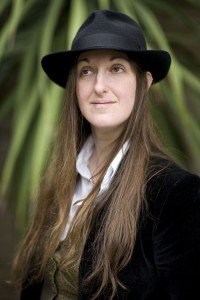
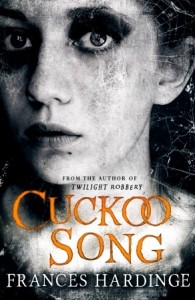
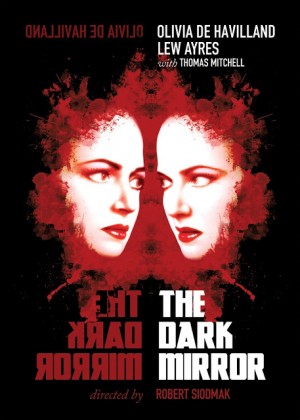

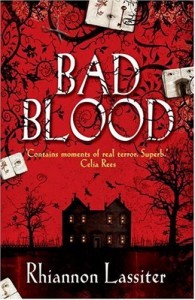
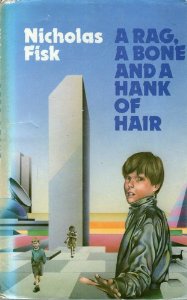









4 Comments
Ana @ things mean a lot
May 6, 2014 at 2:09 pmReason 213334 to love working in libraries: immediately after reading this post I was able to head to the shelves and grab a copy of Bad Blood
Mallori
May 6, 2014 at 3:49 pmI have never been particularly bothered by changlings and doppelgangers. But I have to compliment you on a well written post because just reading your descriptions of your influences and a young girl who discovers she is the monster she fears gave me chills at 2 PM on a sunny day… Lovely.
Meghan
May 6, 2014 at 4:45 pmFascinating post and it certainly makes me want to go out and read all those books right now, including Cuckoo Song. I am so jealous of Ana from the above comment. I live in a tiny town in Oklahoma and the library system truly leaves something to be desired! At least there is a library though.
I really love these Inspirations and Influences posts!
Jana
May 6, 2014 at 11:03 pmAdding Cuckoo Song to my TBR….now. 😀